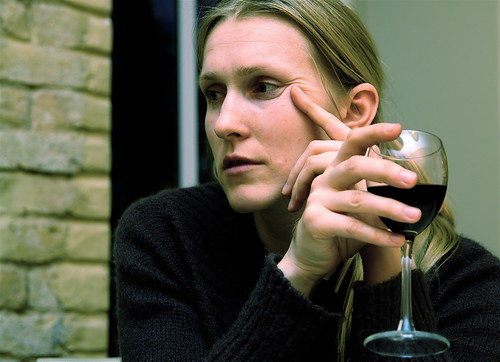We offer medical detox and multiple addiction treatment options in our
luxury treatment centres in Port Hope, Cobourg, and Ottawa.
Signs That Someone Is a Weekend Alcoholic
At the end of the week, it may feel normal to gather with friends for a celebratory drink. While having one or two drinks on a Friday or Saturday evening may not be considered heavy drinking, some people don't stop at just a couple of drinks. When people keep drinking during the weekend, it's called binge drinking or heavy alcohol intake.
There are several issues connected with weekend binge drinking. Heavy drinking during the weekend can lead to health and mental issues, insomnia, and alcohol addiction.
In this article, we'll discuss the negative effects of alcohol abuse and bad drinking habits. In addition, we'll make a list of signs and symptoms of being a weekend alcoholic. Even if you have a drinking problem now and feel like you're a weekend alcoholic, know that you can get help. With counselling and treatment, you can live a healthy life.
Table of contents 1. Is Weekend Drinking Bad? 2. Can You Be an Alcoholic and Only Drink on the Weekends? 3. Signs of a Weekend Alcoholic
Is Weekend Drinking Bad?

Image via Flickr by rolands.lakis
If you have ever wondered if it's bad to drink alcohol every weekend, the answer is yes. The percentage of younger people binge drinking and partaking in high-intensity alcohol is on the rise, with detrimental effects. Drinking alcohol regularly, even if it's just on the weekends or having a casual drink, can lead to swelling and inflammation of the liver. If you continue to indulge in weekend alcohol consumption, you may end up with cirrhosis of the liver, which is irreversible.
Drinking alcohol affects the nervous system and reduces motor skills. After ingesting alcohol, you may notice your speech is slurred, your eyes can't focus, and your balance becomes impaired. Binge drinking on the weekends can lead to driving mistakes and car crashes, sometimes leading to fatalities.
Interestingly, drinking alcohol can lead to anxiety and depression. While you may feel a sense of euphoria when you have your first drink, over time, alcohol lowers levels of an inhibitory neurotransmitter known as gamma-aminobutyric acid (GABA). All human bodies have this neurotransmitter that helps regulate the nervous system. Alcohol depletes the production of GABA and when the body goes into GABA withdrawals, the person may begin to have dark thoughts, changing moods, and heightened levels of anxiety. Sometimes, this darkness and anxiety can lead to relationship issues, abuse, and violence.
Fortunately, with counselling, treatment, and the cessation of excessive amounts of drinking, GABA production can return to normal.
Can You Be an Alcoholic and Only Drink on the Weekends?
Yes, you can be an alcoholic, even if you only drink on the weekends. Many people who drink on the weekends can justify binge drinking as they only drink alcohol a couple of days a week. Weekend alcoholics may deny that they have an alcohol addiction and won't seek help or treatment. Unchecked and untreated, weekend drinking can lead to daily drinking and alcohol use disorder (AUD). While binge drinking may not be quite as serious as AUD, it can eventually lead to alcoholism and serious health consequences.
You may wonder, "What is a drink and what constitutes binge drinking?" According to the National Institute on Alcohol Abuse and Alcoholism, one drink is 12 ounces, one glass of wine is 5 ounces, and one shot of hard liquor is 1.5 ounces. Women who have more than three drinks in a day and men who have more than four are binge drinking.
Signs of a Weekend Alcoholic
The stigma of being an alcoholic often includes someone who is jobless, looks sloppy, and spends all day drinking. If you only drink on the weekends and have a job, are you still a weekend alcoholic or just a casual, social drinker? Signs that you may be or are on the path to becoming a weekend alcoholic include:
- Not being able to stop after one or two drinks. As you begin to feel that alcoholic buzz, your body may begin to crave a third or fourth drink. When you're drinking and socializing, you may not even realize how much alcohol you've had in a short amount of time.
- Feeling guilty about binge drinking. After a weekend of heavy drinking, you may feel guilt or remorse for ingesting so much alcohol. You may even vow not to drink so much the following weekend.
- Justifying the weekend drinking ritual. After a long week of working, it's easy to justify going out with friends for drinks. When you justify your drinking, you're using alcohol as a reward.
- Lying about how much you drink. Being secretive and lying about how much alcohol you actually drink is a serious alcoholic sign. When you drink alone, it's easy to lie to others about your alcohol consumption.
- Thinking about drinking on the weekend. Weekend alcoholics often spend hours during the workweek planning their weekend binge drinking.
- Behaving differently after binge drinking. Alcohol can make you feel uninhibited, aggressive, or depressed. Doing things when you binge drink that goes against your sober personality and values is a sign of alcoholism.
- Blacking out and not remembering the night. While you may remember a fun night out with friends toasting a special occasion with one or two drinks, over-drinking often leads to blacking out and not remembering any of the evening's events.
If you have any of these signs of being a weekend alcoholic, seek treatment as soon as possible before your binge drinking becomes full-blown alcoholism.
The Canadian Centre for Addictions (CCFA) Is Here To Help
Seeking treatment for excessive alcohol consumption, binge drinking, or weekend drinking is the first step toward your physical and mental health and well-being. If you want help with alcohol addiction, The Canadian Centre for Addictions is here for support and treatment. Our staff can help you recover from AUD, alcohol addiction, and alcohol dependence. Once you realize how much better you feel not drinking alcohol, you'll appreciate having an alcohol-free life.
The Canadian Centre for Addictions (CCFA) offers a full range of quality services that give our visitors flexible therapy and counselling for drug and alcohol addiction. Contact us now, call us at 1-855-499-9446 and ask about our addiction program.





